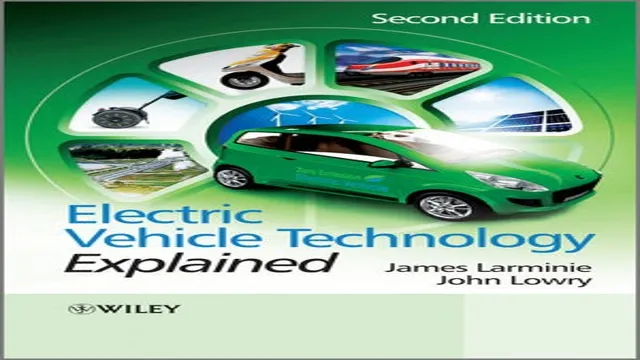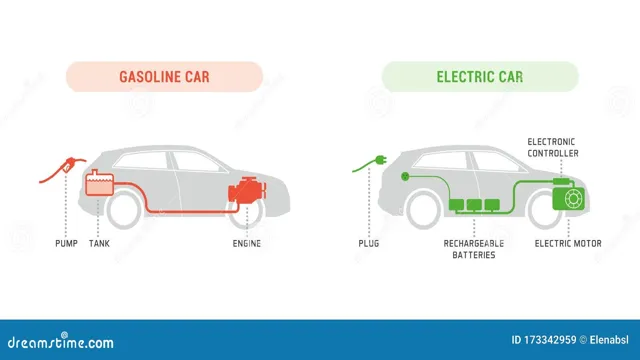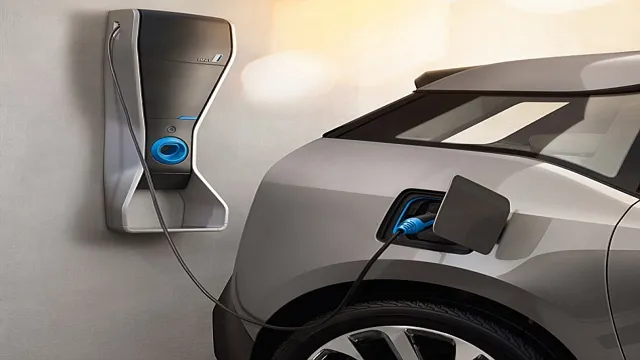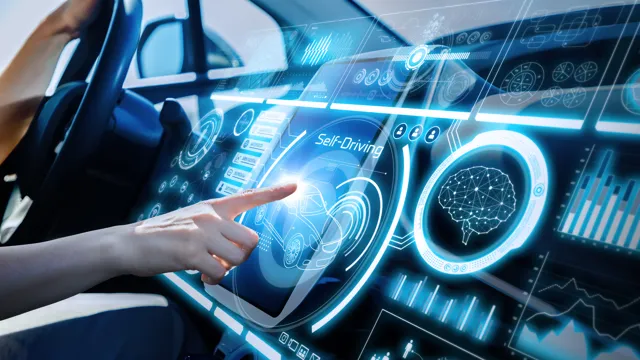Revolutionizing the Road: How Electric Cars are Leading the Way in Green Technology
Electric cars are deemed as one of the most innovative and environmentally friendly technologies to ever grace the motoring industry. With its cutting-edge features, it’s no surprise that an increasing number of individuals are switching from traditional fuel-powered cars to electric ones. Not only do electric cars reduce carbon emissions, but they offer a long-term solution to the increasing problem of climate change.
It’s the perfect solution for those who want to make a significant impact on the environment. In this article, we’ll take a closer look at the concept of electric cars and the impact it has on the environment. Join us as we explore the future of the automotive industry with green technology at its helm.
What is Green Technology?
An electric car is one example of green technology. This type of vehicle runs on electricity, rather than gasoline, reducing carbon emissions and helping to mitigate climate change. Electric cars are becoming more popular and accessible as the technology improves and prices come down.
However, it’s important to consider the source of the electricity that powers these cars – if it comes from fossil fuel-fired power plants, then their overall environmental impact may not be as positive. Still, electric cars are a step in the right direction towards sustainable transportation and a more green future.
Definition and Benefits
Green technology refers to the use of innovative and sustainable methods to create products, processes and systems that are environmentally friendly and conserve natural resources. The goal of green technology is to reduce the impact of human activities on the planet while improving the quality of life. The benefits of using green technology are numerous.
Green technology can reduce greenhouse gases, decrease pollution, conserve natural resources, promote energy efficiency and create a healthier environment. The use of renewable energy sources such as solar, wind and hydro power can help reduce dependence on fossil fuels, while recycling and waste reduction can reduce landfills. By adopting green technology, we can create a more sustainable world for ourselves and for future generations.

How Electric Cars Fit In
Green Technology When we hear the term “green technology,” what comes to mind may vary from person to person. To put it simply, green technology refers to any technology that promotes sustainability, reduces our carbon footprint, and helps preserve the environment. And when it comes to electric cars, they fit in perfectly with this concept.
With traditional gas-powered cars leaving a significant carbon footprint and contributing to global warming, electric cars aim to minimize this impact by utilizing alternative forms of energy and producing fewer emissions. Additionally, with advancements in battery technology, electric cars offer a range of benefits, including improved efficiency and lower maintenance costs, making them a more environmentally friendly and cost-effective alternative to traditional gasoline vehicles. By choosing to use green technology such as electric cars, we can all contribute towards a sustainable future and help to reduce the negative impact we have on our planet.
Advantages of Electric Cars
Electric cars have become increasingly popular in recent years, thanks to their eco-friendliness and technological advancements. One of the primary advantages of electric cars is that they emit little to no greenhouse gases, making them an excellent choice for anyone who is concerned about reducing their carbon footprint. Additionally, electric cars require much less maintenance than traditional gasoline-powered vehicles, which can save you both time and money in the long run.
Another significant advantage of electric cars is that they are incredibly efficient, with the ability to travel further on a single charge than ever before. With electric car green technology, you can drive with peace of mind, knowing that you are doing your part to help the environment while enjoying all the benefits that come with this innovative mode of transportation.
Lower Emissions
Electric cars have several advantages over traditional gasoline-powered vehicles, most prominently their significantly lower emissions. Electric cars run on electricity, which means they produce zero emissions at the tailpipe. This is great news for the environment, as emissions from traditional cars contribute to air pollution and greenhouse gas emissions that are driving climate change.
In contrast, with electric cars, the emissions are shifted upstream, to the power plants that generate the electricity used to charge the car. However, even taking this into account, electric cars still emit less overall greenhouse gases than gasoline cars, especially in regions that generate their power from low-carbon sources like wind, solar, or hydroelectricity. In addition to their positive impact on the environment, electric cars also offer lower fuel costs, reduced maintenance, and a quieter, smoother driving experience.
With all of these benefits, it’s no wonder that the popularity of electric cars is on the rise all over the world.
Energy Efficiency
Electric Cars and Energy Efficiency If you’re looking for a practical way to reduce your carbon footprint, electric cars are the way to go. Not only are they better for the environment, but they also offer several advantages. Firstly, electric cars are much more energy-efficient than traditional gasoline cars, which means that they require less energy to travel the same distance.
Secondly, unlike gas cars, electric cars don’t produce any harmful emissions. This means that they’re much better for our air quality and can significantly reduce air pollution. Additionally, electric cars have lower operating costs than their gasoline counterparts.
Since electricity is cheaper than gas, you’ll save money on fuel costs and will spend less time and money on maintenance. Finally, electric cars are simply more fun to drive. With instant torque and smooth acceleration, electric cars offer a unique driving experience that’s hard to match with traditional gas cars.
So if you’re thinking about purchasing a new car, consider an electric one for a more energy-efficient, cost-effective, and enjoyable ride.
Low Operating Costs
Electric cars offer several advantages over traditional gas-powered vehicles, with one of the most significant benefits being their low operating costs. Unlike gasoline cars, electric vehicles don’t require oil changes, engine tune-ups, or regular maintenance on their emissions systems. Since electric cars don’t have an engine, they also don’t need to deal with the wear and tear of moving parts, meaning less frequent repairs and part replacements.
Additionally, the cost of electricity is generally lower than gas, so it’s cheaper to operate an electric car than a traditional car in the long run. Overall, the low operating costs of electric cars make them an appealing option for drivers looking to save money on their transportation expenses while also reducing their environmental impact.
Challenges to Electric Cars
As our world continues to be more environmentally conscious, electric cars have grown in popularity due to their reputation as a greener alternative to traditional gasoline-powered vehicles. However, as with any emerging technology, there are still challenges that need to be addressed. One of the main challenges for electric cars is the limited range they can travel on a single charge; currently, even the most expensive models can only travel around 300 miles before needing a recharge.
This can be a barrier for those who need to travel long distances on a regular basis. Another issue is the cost of the cars themselves, as they are often more expensive than traditional vehicles. Additionally, charging infrastructure is not yet widely available across the country.
However, as more automakers invest in the technology and the government provides incentives, these challenges are likely to be overcome in the coming years. Despite these challenges, the green technology behind electric cars is a promising and exciting development that will help to reduce carbon emissions and promote a cleaner, more sustainable future for all.
Infrastructure Issues
Electric cars have been around for quite some time now, but the infrastructure required to support them is not yet at its optimal level. One of the biggest challenges for the widespread adoption of electric cars is the lack of charging stations, especially in rural areas where electric cars are becoming increasingly popular. Another issue is charging speeds; electric cars can take anywhere from 30 minutes to a few hours to charge, depending on the type of charger used.
This can be frustrating for drivers who are used to filling up their gas tanks in just a few minutes. The cost of building new charging stations is also a challenge for governments and private companies looking to invest in electric car infrastructure. Improving the infrastructure for electric cars is vital for their success, but it will take time and concerted effort to overcome these challenges.
Range Anxiety
Range anxiety is one of the biggest challenges facing the adoption of electric cars. This is caused by the limited range of some electric vehicles compared to gasoline-powered cars. Although new models of electric vehicles are being developed with longer ranges, it is still a major concern for drivers, especially those who need to travel long distances regularly.
The fear of being stranded with an empty battery has deterred many people from buying an electric car. However, as battery technology advances, electric cars are becoming more feasible for everyday use. For instance, the Tesla Model S has a range of up to 402 miles (647 km), making it a more practical option for long-distance travel.
With improved infrastructure for charging electric cars and better battery technology, the issue of range anxiety is likely to become less of a problem over time.
Future of Electric Cars
Electric cars have captured the imagination of the public as a green technology that can reduce our carbon footprint. In fact, the future of electric cars seems to be bright as more manufacturers are entering the market with innovative designs, longer battery life, and enhanced features. The trend towards electric vehicles is driven by government incentives, consumer preferences, and technological advancements that have made them more fuel-efficient and cost-effective.
As the demand for electric cars increases, it is likely that we will see more investment in charging infrastructure, battery technology, and grid management. While the adoption of electric cars is still in its early stages, it is clear that they have the potential to revolutionize the transportation industry and pave the way for a more sustainable future. As we continue to transition towards a cleaner energy economy, electric cars will undoubtedly play a significant role in reducing greenhouse gas emissions and combating climate change.
Conclusion
In conclusion, electric cars are the epitome of green technology. They emit zero emissions, have significantly lower operating costs, and are proving to be much more efficient than their gasoline-powered counterparts. Not to mention, they offer a driving experience that is not only smooth and quiet but also environmentally responsible.
It’s time to drive into the future, one that is powered by clean energy and electric vehicles. So hop in, buckle up, and let’s drive towards a greener future together!”
FAQs
What is an electric car?
An electric car is a vehicle powered entirely or partially by electricity stored in batteries, rather than gasoline or diesel.
How do electric cars help with green technology?
Electric cars help with green technology as they have low to zero carbon emissions and reduce our reliance on fossil fuels.
What is a hybrid electric car?
A hybrid electric car is a vehicle that utilizes both electricity and gasoline/diesel to power the engine, making it more fuel-efficient and environmentally friendly.
Are there any disadvantages of electric cars?
Some disadvantages of electric cars include limited driving range on a single charge, longer charging times compared to filling up a gas tank, and higher upfront costs.







